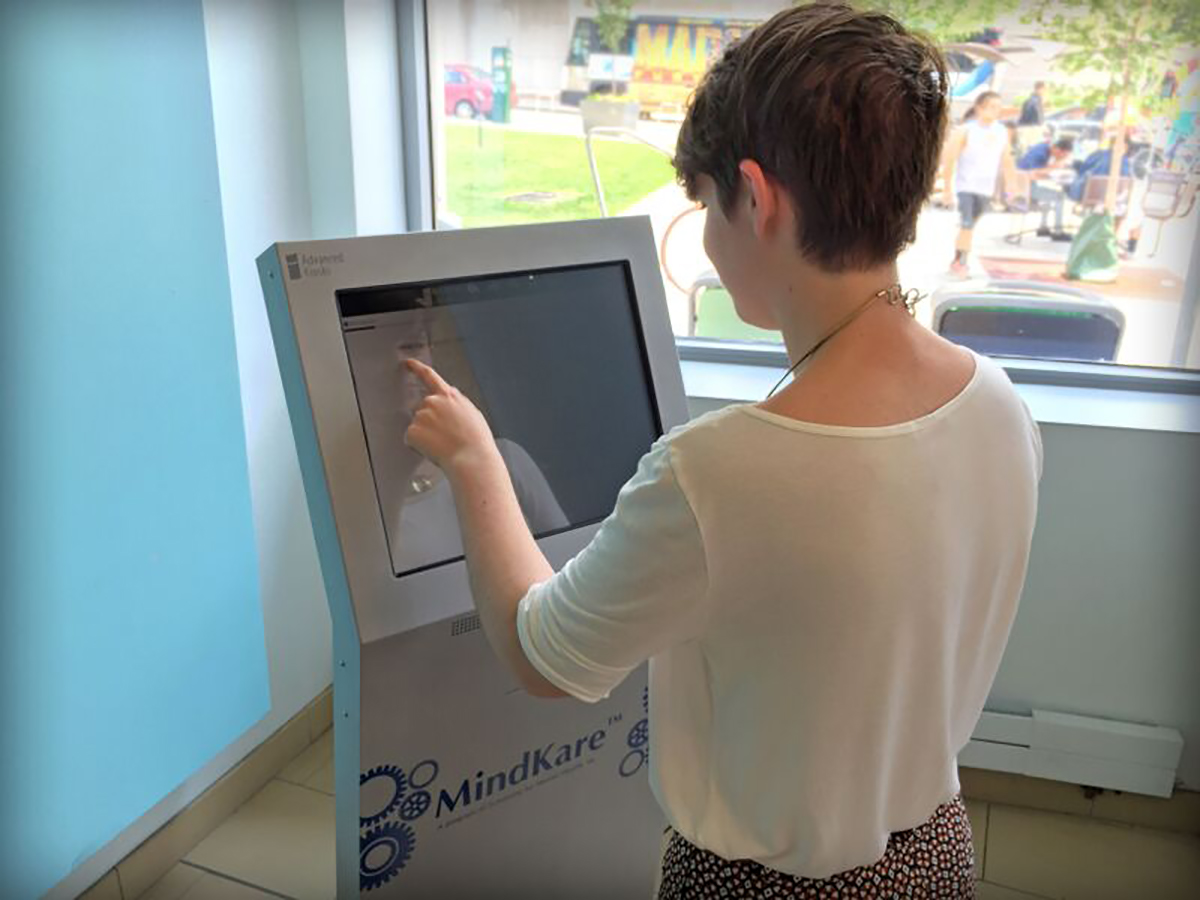This Local Nonprofit Is Trying to Normalize Mental Health Issues

A MindKare kiosk/Photo provided
In 1990, Screening for Mental Health Founder Douglas Jacobs did something that was, at the time, revolutionary. In an effort to draw attention to mental health issues, he declared October 5 National Depression Screening Day, and encouraged people from all walks of life to learn more about their mental health.
Fast-forward 27 years, and the Wellesley Hills-based nonprofit is helping people screen for far more than depression. Today, SMH offers stigma- and hassle-free screening for nine different mental health disorders, running the gamut from eating disorders to PTSD. Just last month, it rolled out a new platform, Psychosis Aware, that assesses early signs of psychosis, a symptom that leads to difficulty perceiving and understanding reality. Up to 3 percent of people will experience psychosis at some point during their lives.
“We have a mission and goal to put treatment of mental health on par with physical health,” says SMH CEO Norm Gorin. “We want to make it as easy for people to get a mental health checkup as they get a physical checkup.”
SMH is working toward that goal with its quick, easy, and anonymous screening process. Testing is available online, through partner organizations, and at kiosks stationed in public places across the country. By year’s end, 74 of these MindKare kiosks will be set up in schools, libraries, municipal buildings, community health centers, and other heavily used spaces nationwide.
Each screening asks a user to describe his or her symptoms, behaviors, and general lifestyle habits, then provides guidance about whether he or she is at risk of a certain condition. SMH is not a diagnostic tool, Gorin stresses, but rather a first line of defense; any user who tests positive for mental health risk factors is encouraged to see a professional.
The service can also help individuals who are worried about a friend or family member, Gorin adds. “Many of the people who use our screening tools are doing it on behalf of someone they’re concerned about,” Gorin says. “They’ll answer questions as they observe the experience of their friend or loved one, and based upon the results, then confer with the individual and help them get treatment.”
Gorin says roughly 70 percent of those who use SMH end up receiving some indication of a mental health issue, though he allows that most people who seek out the screening already have some cause for concern. Making it fast and painless for people to get these results not only encourages early treatment, but also helps reduce the stigma around mental health problems.
“We’re trying to normalize the whole idea of getting a mental health checkup,” Gorin says.
To assess your own mental health, on National Depression Screening Day or any day, visit a local MindKare kiosk or take an online screening.


